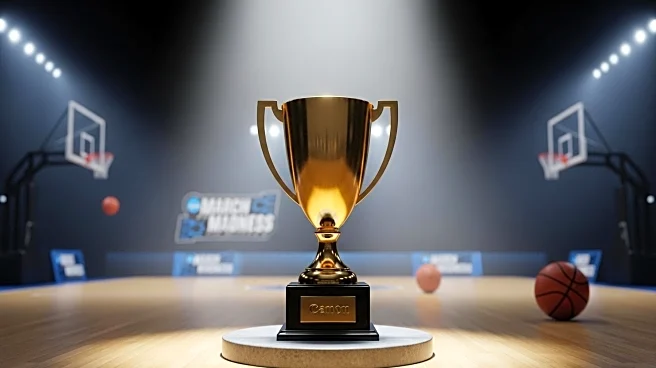What's Happening?
Warren Buffett's annual March Madness bracket challenge, which has been a staple for nearly a decade, finally has a winner of its $1 million prize. A Berkshire Hathaway employee from its FlightSafety International subsidiary successfully predicted 31 out of 32 first-round games in the men's NCAA Tournament. This marks the first time the grand prize has been claimed since the contest's inception. The challenge, which was initially open to the public in 2014 with a $1 billion prize for a perfect bracket, has since been an internal event for Berkshire employees. The winner, who remains anonymous, managed to correctly call the first 29 games before missing one, and continued to perform well in the second round, predicting 44 out of 45 games correctly.
Why It's Important?
The successful claim of the $1 million prize in Warren Buffett's contest is significant as it highlights the rarity and difficulty of achieving such a feat in bracket predictions. This event not only brings attention to the statistical improbability of winning but also underscores Buffett's commitment to engaging his employees with unique incentives. The contest serves as a motivational tool within Berkshire Hathaway, fostering a sense of community and excitement among employees. Additionally, the payout reflects Buffett's desire to reward his workforce, enhancing employee satisfaction and loyalty. The event also garners public interest, showcasing Buffett's innovative approach to employee engagement.
What's Next?
Following this milestone, it is likely that the March Madness contest will continue to be a highly anticipated event within Berkshire Hathaway. The success of this year's winner may inspire more employees to participate in future contests, potentially leading to increased internal competition. As Buffett has expressed a desire to give away significant prizes while he remains chairman, there may be further enhancements or changes to the contest rules to maintain interest and excitement. Additionally, the anonymity of the winner may prompt discussions on privacy and recognition within corporate incentive programs.








